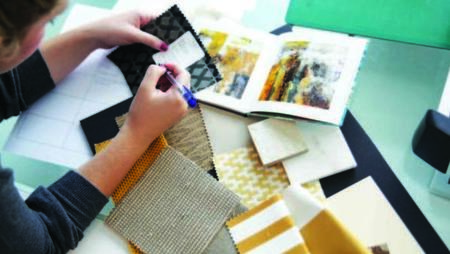If you are passionate about art and you love designing or decorating, you may look at becoming an Interior Designer.
Interior designers are trained people entrusted with the task of designing, decorating or renovating private homes and various types of buildings like offices, hotels, shops, restaurants, etc.
As an interior designer, different tasks you may be anticipated to perform include:
- Understanding ideas and requirements of clients
- Preparing budgets and estimating costs
- Developing designs as per client’s specifications within the allotted budget
- Preparing rough and final sketches
- Working on colour scheme, fabrics, furniture and fittings
- Researching and gathering information related to the project
- Producing samples to be presented to the client
- Setting project schedules
- Researching and sourcing products and fabrics needed for the project like fittings, furniture, finishes etc
- Creating detailed drawings
- Monitoring the progression of work
Your working hours are usually regular extra hours and may involve evenings and weekends.
You are usually based in a studio, but spend most of your time visiting clients and sites. Self-employed designers may work from home or from a rented studio. There are numerous options for part-time and freelance work.
|
Mode of employment |
Salary per year |
|
Junior interior designers |
Around £18,000 to £22,000 |
|
Experienced designers |
£24,000 to £40,000 |
|
Senior designers |
£45,000 or more |
Source: nationalcareersservice.direct.gov.uk
As a freelance interior designer, you may set your own hourly rates.
To become an interior designer, you usually need art or design related qualification. It is urged that you pursue art or design related subjects at foundation level, HND or degree level. The related subjects may be fine arts, 3D designing, spatial designing and interior architecture.
You may refer to following links for finding regular as well as distance learning courses:
- UCAS
- hotcourses
You may enter this profession by starting off as a design assistant.
To gain qualifications and accomplishments necessary for this competent job, you may pursue following courses:
- Stage 2 Certificate/Diploma in Creative Techniques (Interiors)
- Grade 2/3 Certificate in Interior Design Skills
- Level 2/3 Certificate in Design and Craft (Interior Décor)
- Stage 3 Diploma in Spatial Design (Interiors)
- Stage 3 Diploma in Professional Interior Design Skills
When seeking employment, you need a work experience and portfolio to impress potential employers. For this, you may undergo training and both paid or underpaid work experience.
Useful links:
- Chartered Society of Designers
- British Institute of Interior Design
Once employed, you may be encouraged to work towards various industry related qualifications. These may include short courses at colleges or with individual training providers. You may also consider pursuing a postgraduate degree or diploma in the concerned area.
For continuing professional growth and development and to make professional contacts, you may consider connecting a professional body or you may travel to trade fairs. For more information on professional development and networking, refer to Creative Choices.
To become an interior designer, it is vital that you demonstrate the following:
- Creativity
- Excellent drawing and graphics skills
- Practical skills
- Good organisational skills
- Project-management skills
- Technical knowledge of computer-aided design (CAD) and model-making skills
- Impeccable communication skills
- Be able to work under pressure
- Be able to meet deadlines
- Be able to work within allotted budgets
- Excellent problem solving skills
- Knowledge of building and safety regulations
- Good negotiation skills
As an interior designer, you may find an easy work with:
- Retail outlets
- Interior design consultancies
- Architectural offices
- Design agencies
- Ships and aircrafts agencies
You may also freelance or work on contracts with independent firms.
After gaining significant experience, you may get career progression into related roles such as virtual merchandising, museum planning, exhibition designing or theatre designing.
Other useful links:
Last Word: This job may only be suited for you if you have a creative bent of mind and you are willing to put long hours into your work.

